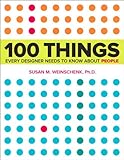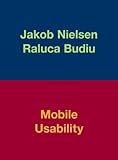A book remains the main source of knowledge especially for those who want to learn something new. Online resources freely available on the Internet like articles and blogs are also effective, but only a book will give you a structured, basic knowledge of the subject that you want to study.
This is also applicable when it comes to studying web design. Yes, you can be a talented self-taught person, but without fundamentals, you will not go far. Eventually, you will get a complex project that would be impossible to complete with no theoretical knowledge of basic concepts.
Do not wait until such a situation happens. Here is a selection of the top 5 web design books that will open the door to the magical world of web development for you.
The Best Interface Is No Interface

(By: Golden Krishna )
If the title of this book seems provocative to you, this is not accidental. On the first pages of his best web design book, Golden Krishna puts forward a radical thesis: modern web development and society that gave birth to it drove themselves to a standstill. The only way out is to regard a user and their true interests as of paramount importance. The author draws a very gloomy picture of a modern world, where people remain chained to a screen for hours to a detriment to their own health and social life. But overall, his outlook is optimistic: very soon, the old paradigm will be replaced by a fundamentally new type of user interaction with a device – minimum of actions and minimum visuals. A manifesto of Krishna, which caused a lot of hype in the web development community, will be of interest to those who are looking for a new perspective and think about prospects.
100 Things Every Designer Needs to Know About People

(By: Susan Weinschenk )
Psychologist Susan Weinschenk offers readers a study on people and the peculiarities of their thinking as well as the opportunities that an enterprising designer can learn from. The book is, first of all, fascinating. It elaborates on how associative thinking works, what the modes of assimilation of information are, and where the line between non-verbal communication and manipulation lies. The facts that Weainshck lists are really unexpected and the conclusions are ambiguous and interesting. This reading is not for finding ready solutions, but for general development, reflection and, let us not be afraid of this word, inspiration. Speaking of inspiration or a lack thereof, you can visit “credible essay writing help right here” service in case you are a student struggling with writing some paper.
About Face: The Essentials of Interaction Design

(By: Alan Cooper )
This is a fundamental work on design and web development, without which, no list of web development and usability books can be considered complete. This comprehensive guide to UX / UI, the first edition of which was published in the nineties, became a reference book for a number of generations of designers. Thanks to the authors, who diligently supplement and update the materials with each new edition, the information remains relevant today. The depth of study of the web development topic, the detailed analysis and the universality of the application set the bar for all other books on this list.
Mobile Usability

(By: jakob Nielsen )
A good, multidimensional study on usability programs from a well-known expert in HCI. The components of the user experience during interaction with an application on a particular device are disassembled literally by bones with the whole chain of steps that leads from the impulse to the action being outlined. By alternating theoretical calculations with the analysis of specific, successful and unsuccessful solutions, the authors lead the reader to the conclusion: the web development of a mobile application must follow two principles – simplicity and naturalness. For all its scientific nature, the book is written in an accessible language and well structured – it can be read by a web designer of any level.
Burn Your Portfolio

(By: Michael Janda )
The book introduces us to the realities of the web development business, existing practices and unwritten rules of doing business, which most designers, photographers, and representatives of other creative professions learn only by engaging in real work. The author in a humorous way gives us invaluable information about working on a team, building relationships with customers and colleagues, interacting with customers and much more. Readers will learn that brainstorming often does more harm than good, that “designers are from Mars, and customers are from Venus” and that the designer has only 65 seconds to get a job. Inside, there is 111 copyright advice to help you learn web design, without understanding which starting a job in the web development business would seem like hell.
We hope that after reading these must have books for web developers listed above, you will get out of the design pitfalls, and the work will bring you more pleasure than ever before.